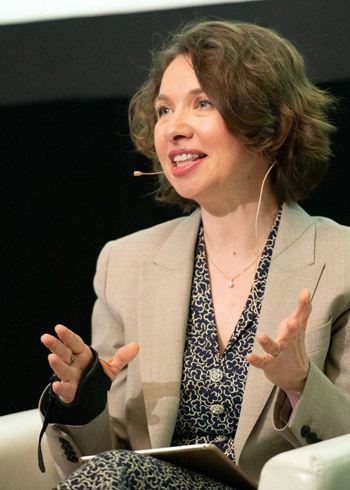
Anna Alexandrova, Professor in the Philosophy of Science, has co-authored a new report on the role of social and cultural spaces in building communities.
The report, 'Measuring Social and Cultural Infrastructure', was commissioned by the British Academy. It was carried out by the Bennett Institute for Public Policy, with contributions from several researchers, including Alexandrova.
The report develops a definition of social and cultural infrastructure, spaces and systems that enable connection and creativity, and proposes a process for measuring it. Alexandrova's research on value judgements in measurement, in the form of social and cultural spaces, informed this stance.
These spaces include parks, libraries, and community centres, which have often been overlooked in discussions about infrastructure. Instead, the focus has largely been on 'hard infrastructure' such as roads, railways and energy grids. This has resulted in the exclusion of many 'soft' infrastructure sites, despite their social value and their critical role for fighting inequality and promoting solidarity.
"Defining infrastructure, let alone social and cultural, is an awesome challenge," she explains "because it is a familiar but fuzzy concept. Since it refers to the systems enabling valuable activities, it cannot be defined purely neutrally, with only facts."
The report proposes a three-stage framework for identifying social and cultural infrastructure. The framework determines whether an entity is an asset that accumulates value, whether it is infrastructure used by more than one person, and whether it develops individual and community identities, in this order. Social infrastructure is defined as any service or space that fulfils all three criteria.
Under this more flexible framework, infrastructure can include non-physical entities such as community networks and recurring events, and sites such as barbershops and supermarkets. Key to this is Alexandrova's argument against prioritising quantitative measurements in evidence-based practice. The report argues for a plurality of methods for measuring 'soft infrastructure'.
"Quantification is not a value in and of itself," she summarises. "Sometimes it enables, other times it oppresses. Communities need to take measurement into their own hands, rather than being led by fixed ideas about how to measure."
Alexandrova hopes that charities and governments will adopt this model infrastructure and defend common spaces and resources, to improve society's quality of life.
